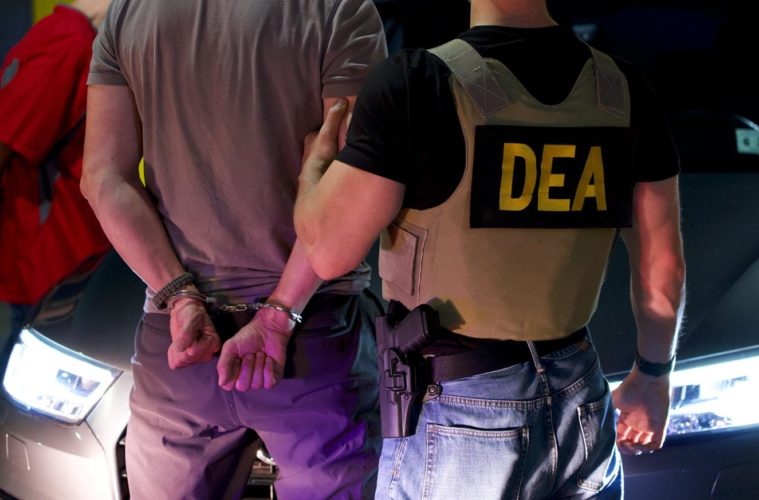The Drug Enforcement Administration released its annual National Drug Threat Assessment today, and despite the changing times, there was plenty to do with cannabis.
The very first reference to cannabis in the report came in the executive summary a couple of pages in. The DEA noted that Mexico remains the most significant foreign source for marijuana in the United States. In a take firmly cementing what advocates said in the years leading up to marijuana legalization, the DEA notes transnational drug organizations that previously made bank off the sale of weed have largely been supplanted by domestically produced marijuana.
Mexico remains the most significant foreign source for marijuana in the United States. Customs and Border Patrol seized nearly 249,000 kilograms of marijuana along the Southwest Border between mid-2019 to mid-2020.
As for weed on the streets of the U.S., there is plenty of it. Only four DEA Field Divisions – Atlanta, Caribbean, El Paso and New Jersey – indicated marijuana availability was moderate rather than high. But that still means weed was generally readily accessible. DEA’s Atlanta Field Division was the only division that reported marijuana was less available compared to the previous reporting period.
In what can only be seen as a positive, forensic drug testing labs used by law enforcement saw less pot in 2019 and the first half of 2020. There were 270,677 marijuana reports submitted. That’s a 21 percent decrease from the 344,382 reports submitted in 2018. But compared to other drugs, there was still a ton. The only thing they tested more of was methamphetamine.
The DEA broke the U.S. weed market down into three categories: Illicit markets, state-approved medical marijuana markets and state-approved personal use/recreational markets. The DEA emphasized that each is very different from the other two.
“State-approved medical marijuana is diverted to the illicit market in several ways. Some
individuals and organizations exploit medical marijuana allowances to produce or acquire marijuana or marijuana products. Instead of using what they purchase or grow, they sell some or all of it, often in markets where marijuana is not legal at the state level, thus increasing their profit. Additionally, some marijuana produced by state-licensed growers is diverted and sold illicitly rather than through state-licensed retailers,” the report read.
The report said, “Illicit and state-approved markets often overlap. This creates opportunities for criminals looking to exploit state legalization, while presenting challenges for federal law enforcement.” It did not, however, speak to the local enforcement being done at the municipal and state level.
The DEA also claimed legal cannabis entities are using the same tactics employed by transnational drug organizations to hide their profits and not pay their fair share of taxes. This undercuts one of the big financial arguments used by the pro-cannabis crowd.
One of the claims that seemed a bit more outlandish is that the 2018 Farm Bill challenged law enforcement, particularly in states that legalized marijuana. The DEA said investigations revealed a significant number of hemp businesses and grow operations that are owned and operated by members of drug trafficking organizations illegally producing and trafficking marijuana.
We asked the DEA if the drug trafficking organizations they referenced as taking part in the legal hemp industry included those participating in state markets in full compliance that aren’t diverting anything. So specifically, businesses where the cannabis only travels back and forth within the vertical of the business or other METRC/state-compliant entities, that separately may be participating in the hemp industry.
“Legitimate, state-registered businesses operating in full compliance with state law are not considered drug trafficking organizations,” the DEA told L.A. Weekly. “To give an example, [drug trafficking organizations] referenced here could be cartels posing as a legitimate business in order to circumvent law to produce marijuana, then distribute in violation of state law.”
Advertising disclosure: We may receive compensation for some of the links in our stories. Thank you for supporting LA Weekly and our advertisers.

